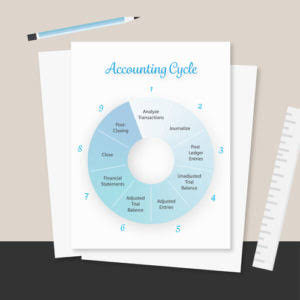
Once collected, the lawyer will typically place the retainer fee in its own distinct account, and then bill the client against the retainer as the attorney renders legal services. A retainer fee is a type of legal fee that a prospective client pays in order to secure the services of an attorney. Retainer fees are most often paid before a prospective client is considered to have legally retained the services of an attorney. In other words, a retainer fee acts as a sort of “down payment” to help secure a lawyer’s legal services for the prospective client’s case. A retainer may be required when an attorney charges based on an hourly or flat-fee structure.
- But, your retainer guarantees the lawyer or firm will be there for you if you require their assistance.
- The most significant distinction between advance fees and general retainers lies in when the funds are considered earned by the lawyer.
- Any unearned retainer fees that are not used can be returned to the client.
- Additionally, lawyers should clearly explain how their retainer system works to their clients.
- (b) A lawyer shall communicate to a client the scope of the representation and the basis or rate of the fee and expenses for which the client will be responsible.
- Improperly treating advance fees as earned upon receipt can result in disciplinary violations.
Common Restrictions Imposed by Landlords on Legal Aid Tenants During the Pandemic
- Further, a retainer must have been created with the intention that you and the lawyer will enter into a legally binding relationship.
- It allows clients and customers to pay in advance for professional services of a company or individual.
- A trust account is a bank account managed by a lawyer that holds all the money client give the lawyer in trust.
- Usually the contingency agreement says the percentage increases with each step in the legal process.
- If you are hiring an attorney on retainer to help you check things like employee contracts when you hire new people, make sure the attorney you hired has business experience.
- Attorneys then bill against the trust account and earn the fees as services are performed.
Your lawyer QuickBooks advises you of options and then gets your instructions before taking any actions. For example, if your lawyer receives a settlement offer from the other side, your lawyer will discuss the offer (whether it is reasonable) and the pros and cons of accepting or not accepting the offer. You make the final decision on whether or not to accept the offer, taking into account your lawyer’s advice.
Invoicing and Retainer Replenishment Process
The lawyer can ask you to ‘top up’ the retainer fee when it is getting low. You have retained a lawyer when you have talked to the lawyer, the lawyer has completed a conflict check and the lawyer has agreed to represent you. Usually this process ends with you and the lawyer signing a written retainer agreement. Clients may also give lawyers money in trust to complete purchase agreements.
Hidden Fees

Understanding these differences is essential for both clients and attorneys to ensure transparent and ethical fee arrangements in the practice of law. Retainer fee contracts are essentially the same thing as retainer agreements. The term “retainer fee” emphasizes Bakery Accounting the upfront payment aspect of the agreement.
- This blog is solely informational and is intended to provide a broad overview on matters related to law and legal topics.
- Clients are most motivated to fund your work at the start of the relationship.
- The payments in retainer agreements are determined by the advance charged to the clients for the professional services of an adviser, consultant, lawyer, freelancer, and so on.
- Networking is equally important; a law degree can create access points that lead to unexpected opportunities.
- The lawyer should provide the client with a final accounting of the fees earned and expenses incurred.
- These programs are designed to assist low-income tenants who cannot afford legal representation.
Ultimately, LeanLaw’s features support a culture of compliance and risk management throughout the firm’s operations and client service. The British Columbia Courthouse Library has a list of useful resources about how does a retainer fee work unbundled legal services. More litigants in person (LiPs) are appearing before the courts, and more individuals are demonstrating a preference toward taking greater control over their own legal affairs. This “do it yourself” law culture is encouraged by the growth of self-help legal websites, community services, and information/form databases (such as JustAnswer.com). The use of Artificial Intelligence in the legal industry is also on the horizon.

Set Your Law Firm Accountant up for Success

If the client’s case is resolved before reaching the five-hour limit, the lawyer refunds the remaining portion of the retainer to the client. Do you have any questions about a retainer agreement and want to speak to an expert? Post a project today on ContractsCounsel and receive bids from contract lawyers who specialize in contracts. Lawyers should review the topics covered in the Retainer Letter or Retainer Agreement early in the relationship, preferably at the first meeting. The Retainer Letter will govern your relationship with the client for the lifetime of the matter.